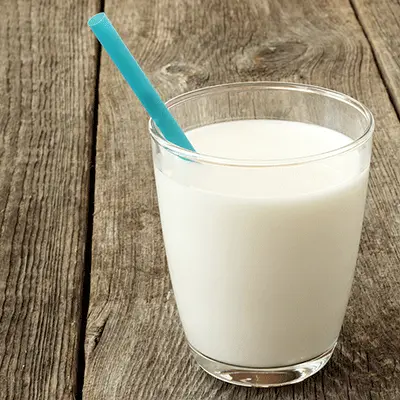Do Dairy Foods Contain Vitamin K?
Yes, dairy foods contain vitamin K2, a fat-soluble nutrient that plays a vital role in bone and cardiovascular health. Research shows that the vitamin K2 content in foods like milk, cheese and yogurt is closely linked to their fat content. For example, full-fat cheeses have more vitamin K2 than their lower-fat counterparts, and whole milk has more vitamin K2 than skim or low-fat milk.
What Are The Benefits of Vitamin K?
Vitamin K is one of four fat-soluble vitamins, along with vitamins A, D and E. It helps with blood clotting, bone metabolism, cell cycle regulation and cardiovascular health. One study has also shown vitamin K2 consumption is associated with a reduced risk of metabolic syndrome in adults, although more research is needed. The vitamin K content of full-fat dairy is one possible reason for the neutral-to-favorable health outcomes that have been associated with eating dairy. More research is needed to know for sure.
What Foods Have Vitamin K?
Vitamin K is found in a variety of foods, including green leafy vegetables like kale, spinach, and broccoli; vegetable oils such as soybean and canola oil; fermented foods like natto; and dairy products, especially full-fat milk, cheese, and yogurt. Meat, eggs, and some fruits also contain smaller amounts of vitamin K.
There are two major forms of vitamin K: vitamin K1 (phylloquinone) and vitamin K2 (menaquinone). Vitamin K1 is found primarily in plant-based foods, while vitamin K2 is found primarily in animal-based foods such as dairy foods, pork, chicken and eggs. The recommendation for vitamin K in the U.S. is based on vitamin K1, primarily because of insufficient research on the role of vitamin K2 in maintenance of vitamin K status.
Is it OK to Eat Full-Fat Dairy for Vitamin K?
While the Dietary Guidelines for Americans recommends dairy foods at all fat levels, it encourages you to be mindful of keeping your daily saturated fat consumption at about 10% of your total calories.















